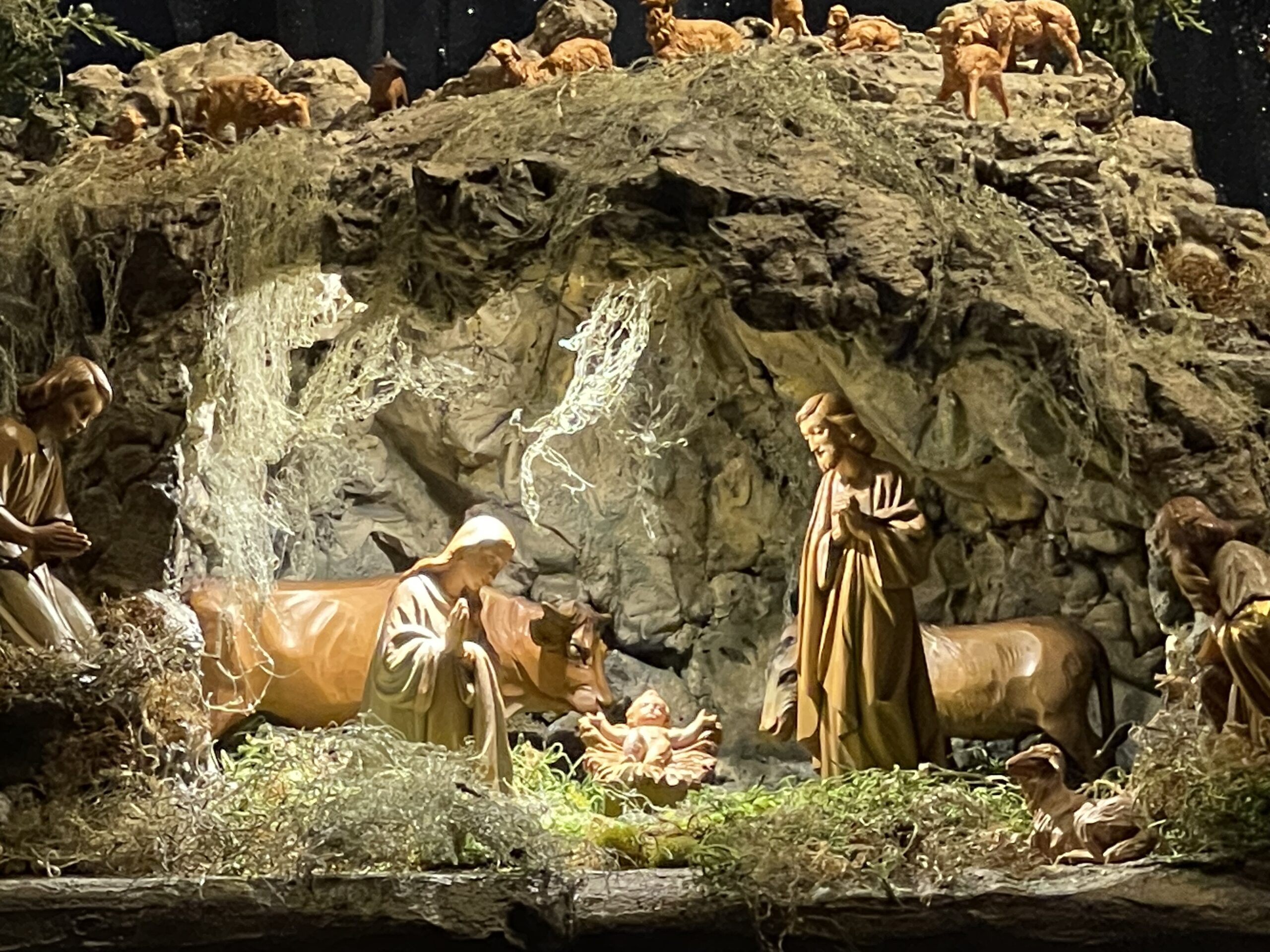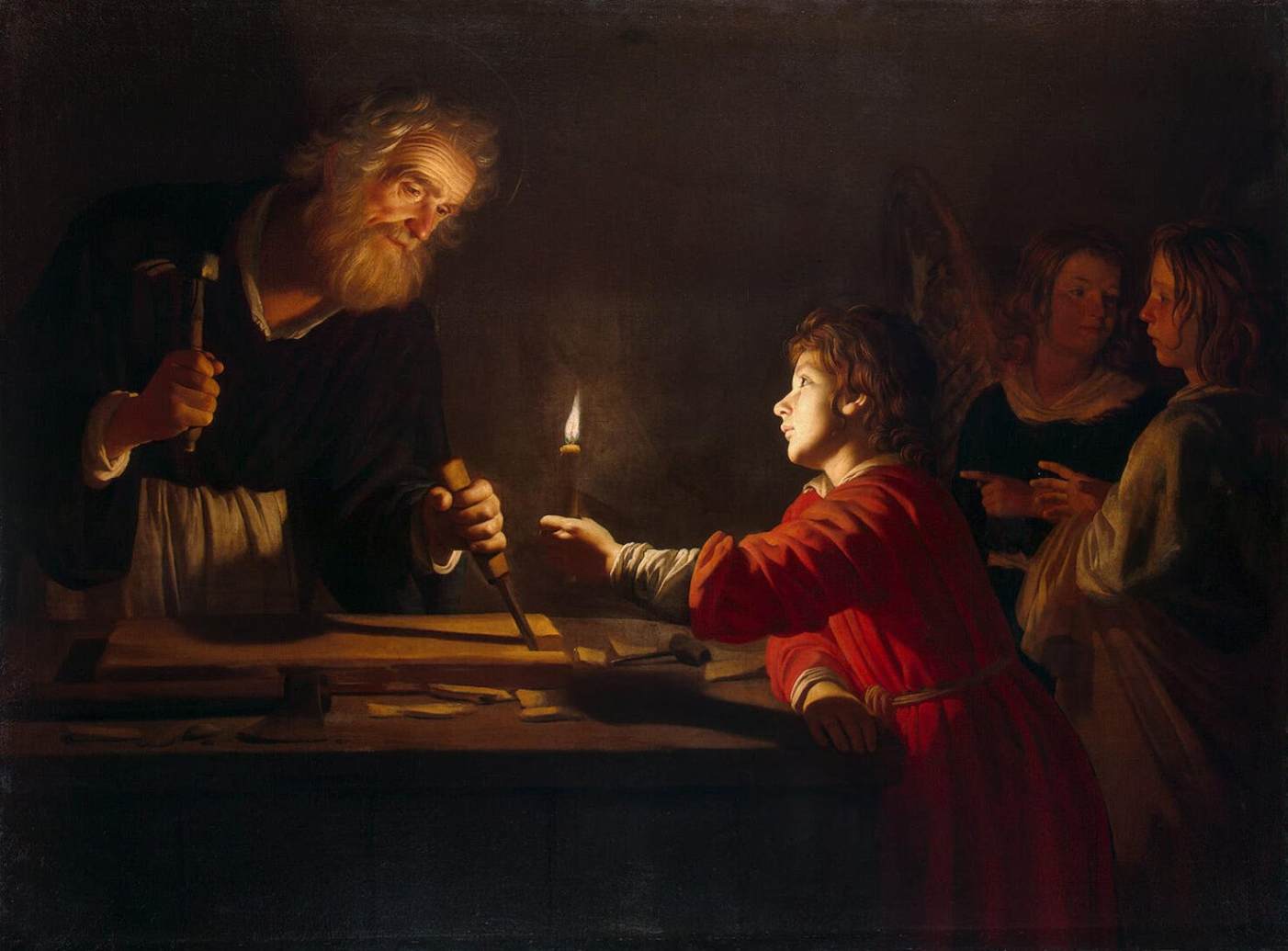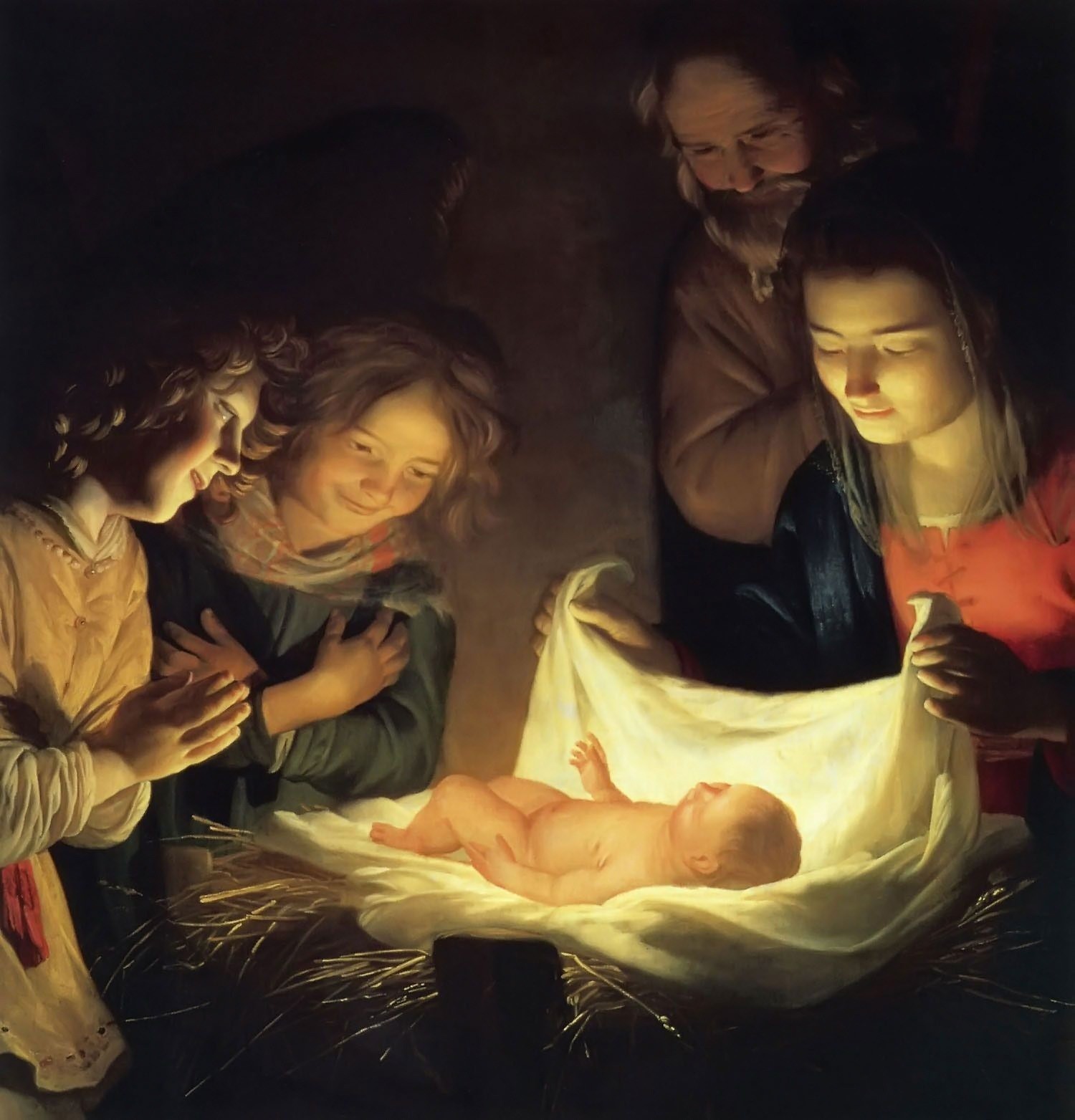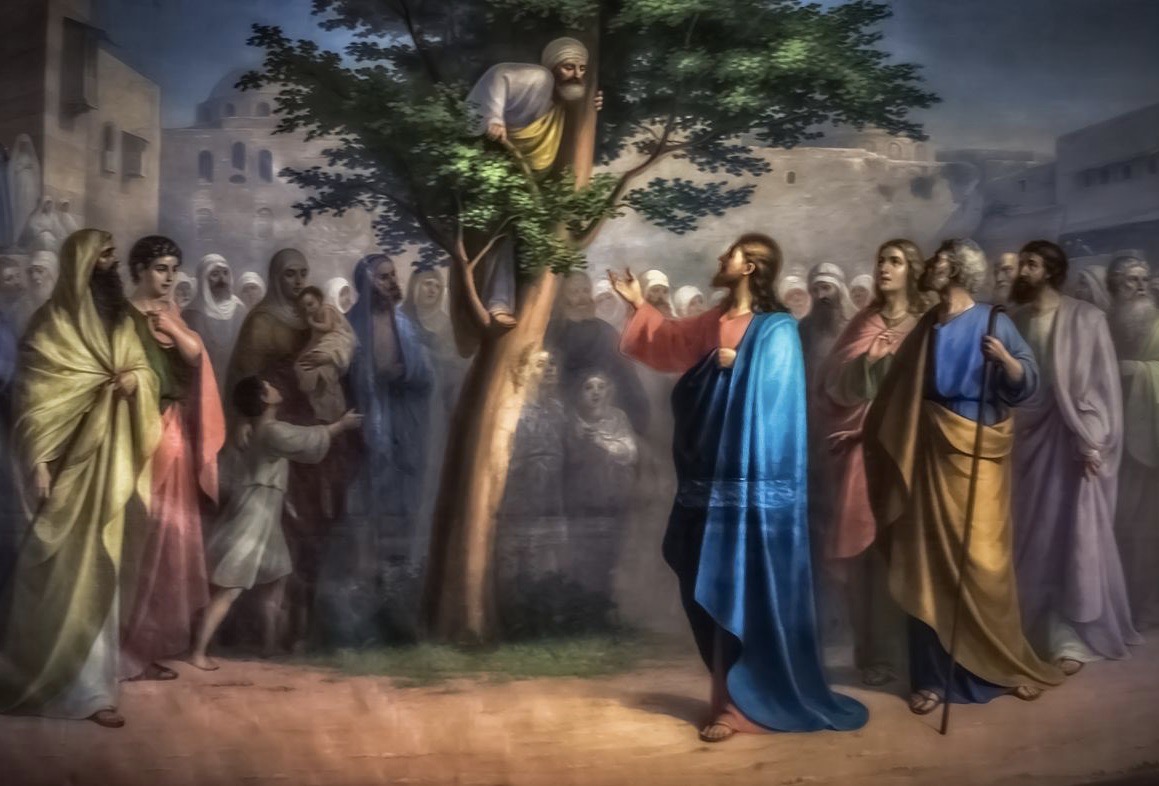And The Word Was Made Flesh
In the beginning was the Word: the Word was with God and the Word was God. He was with God in the beginning. Through Him all things came into being, not one thing came into being except through Him. What has come into being in Him was life, life that was the light of men; and light shines in darkness, and darkness could not overpower it. The Word was the real light that gives light to everyone; He was coming into the world. He was in the world that had come into being through Him, and the world did not recognize Him. But to those who did accept Him He gave power to become children of God, to those who believed in His name who were born not from human stock or human desire or human will but from God Himself. The Word became flesh, He lived among us, and we saw His glory, the glory that He has from the Father as only Son of the Father, full of grace and truth. (Jn 1:1-5, 9-10, 12-14)
The daily reading for New Year’s Eve is the Gospel of John Chapter 1, which precedes the Feast Day of Mary, Mother of God and the infancy narrative from the Gospel of Luke in which the angels announce the Savior to the shepherds. Encountering these two readings back to back reveals the sublime truths that John conveys.
Everything was created through The Word, Jesus. God the Father, Creator, created through the spoken word which is Christ Himself and life was given to creation through the Holy Spirit. When we read scripture aloud at Mass, we are encountering Jesus as The Word. When we truly understand that we are not merely reading a book but are meeting with The Lord, our attention shifts and our hearts open to receive Him. At every Mass, we can be like the shepherds who sought Him in Bethlehem. Our longing to receive Him is a gift from The Father to prepare our hearts to receive His Son. We can take hold of the words of scripture and plant them firmly in our hearts to become God’s own children, and share in the inheritance of His Only Begotten Son. The Word is how Moses, David, the Prophets, and holy men and women in the Old Testament encountered Our Lord.
Even greater blessings come to us because The Word was made flesh. Gabriel the Archangel came and greeted Mary with “Hail, full of grace.” Mary, through Her life of continual prayer, had built a cathedral in Her heart, a cathedral so beautiful that God Himself chose to live there. Gabriel greets Her as his queen and Mary is so humble that She only asks how God wishes Her to serve Him.
Jesus came to dwell among us as one of us, not by coming in majesty, but by becoming a baby born of a woman and into a family. He chose to subject Himself to the commandment “Honor thy father and thy mother” because the family is God’s gift to us; it is His plan that parents offer their time and labor for bringing up souls that honor God, and that children honor their parents for these sacrifices. God gives women the supreme gift of being companions with Him on the intimate journey of the creation and nurturing of human life. Jesus chose to create His own mother, save Her from the stain of sin at Her Immaculate Conception, and then asked Her if She would be willing to become His mother. This demonstrates the humility of God, the sacredness of human life, and the value God places on motherhood. As Catholics, we love Mary because Jesus loves Her and we honor Her because Jesus honors Her. In all things, we strive to imitate Our Lord.
Jesus came into the world and the world did not recognize Him. Many today still do not recognize His presence among us. He is with us, Body, Blood, Soul, and Divinity, in the Eucharist. Mass is not a social event; it is a divine event. It is a celebration of God with us, God sharing His divine life with us, nourishing our souls with Himself. When we understand this and prepare our hearts accordingly, it is then that we too can say that our souls see Him in His glory, the glory that He has from the Father as Only Son of the Father. What is hidden from world we see in grace and truth.





